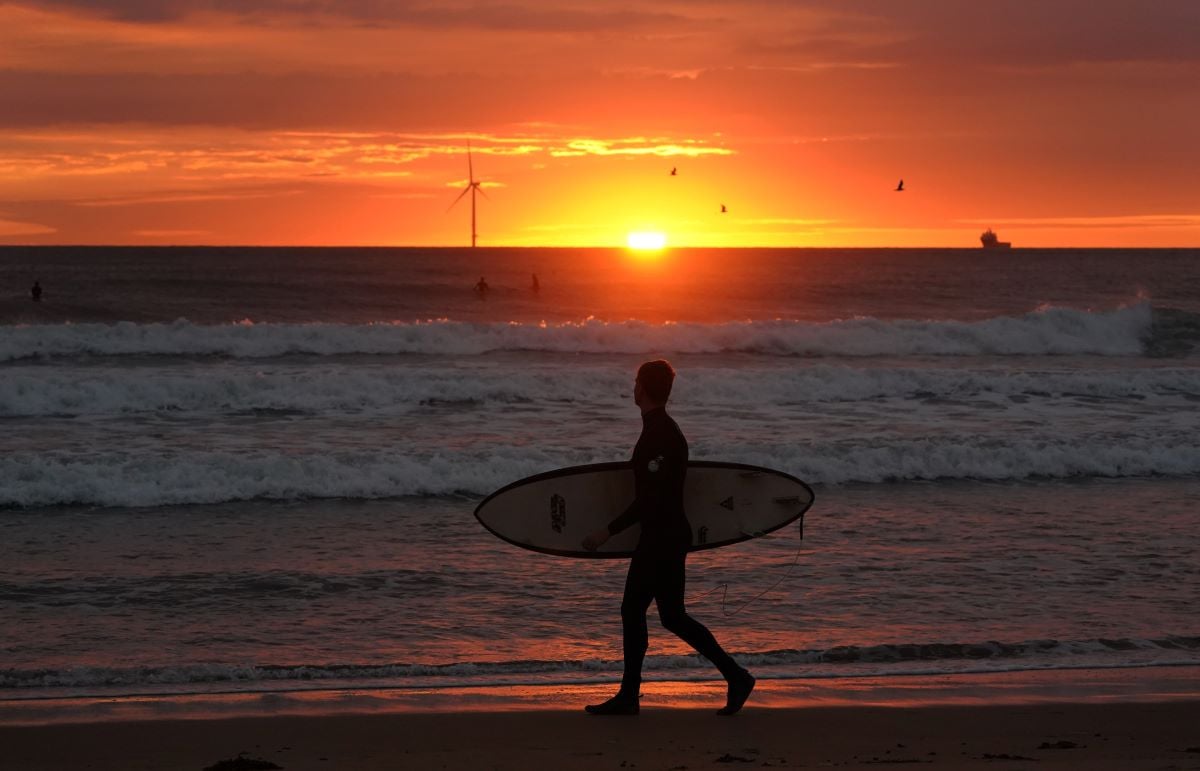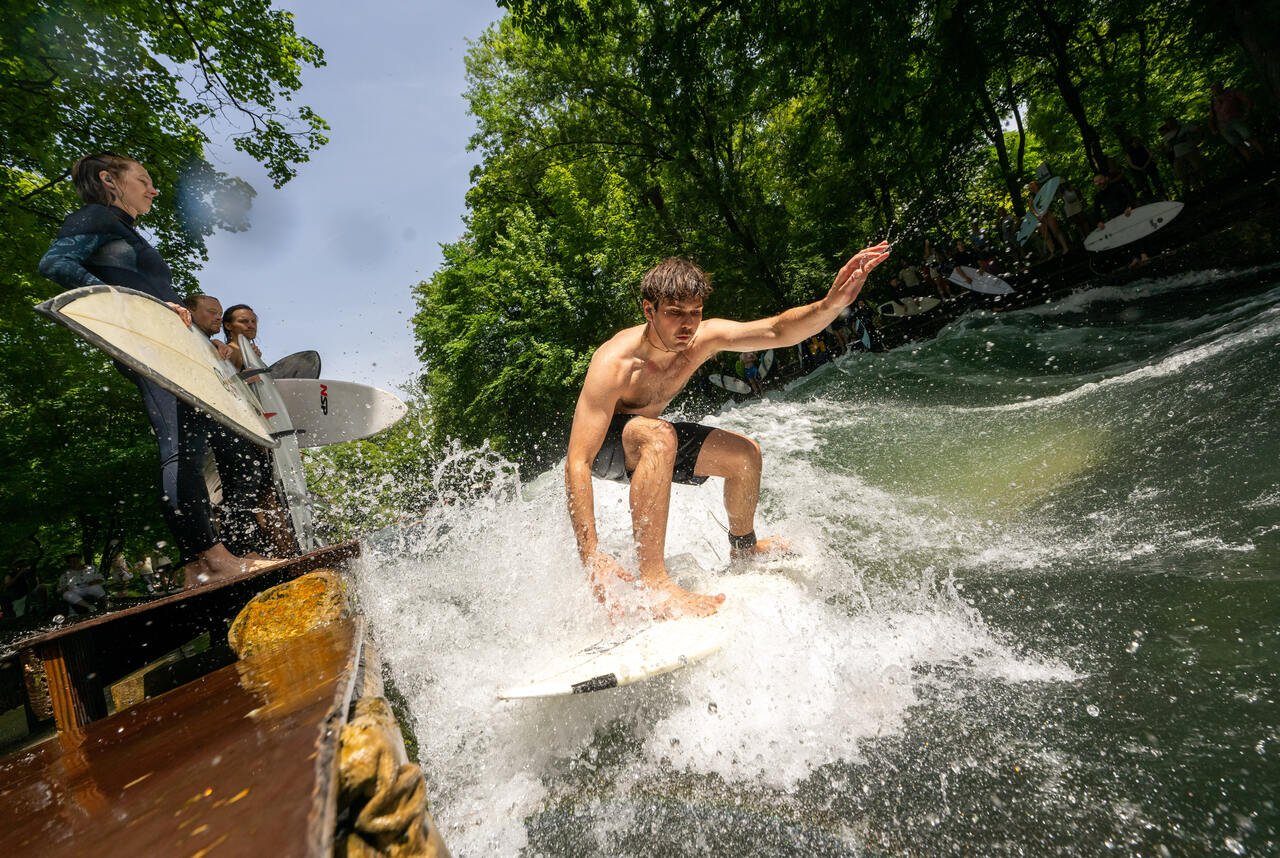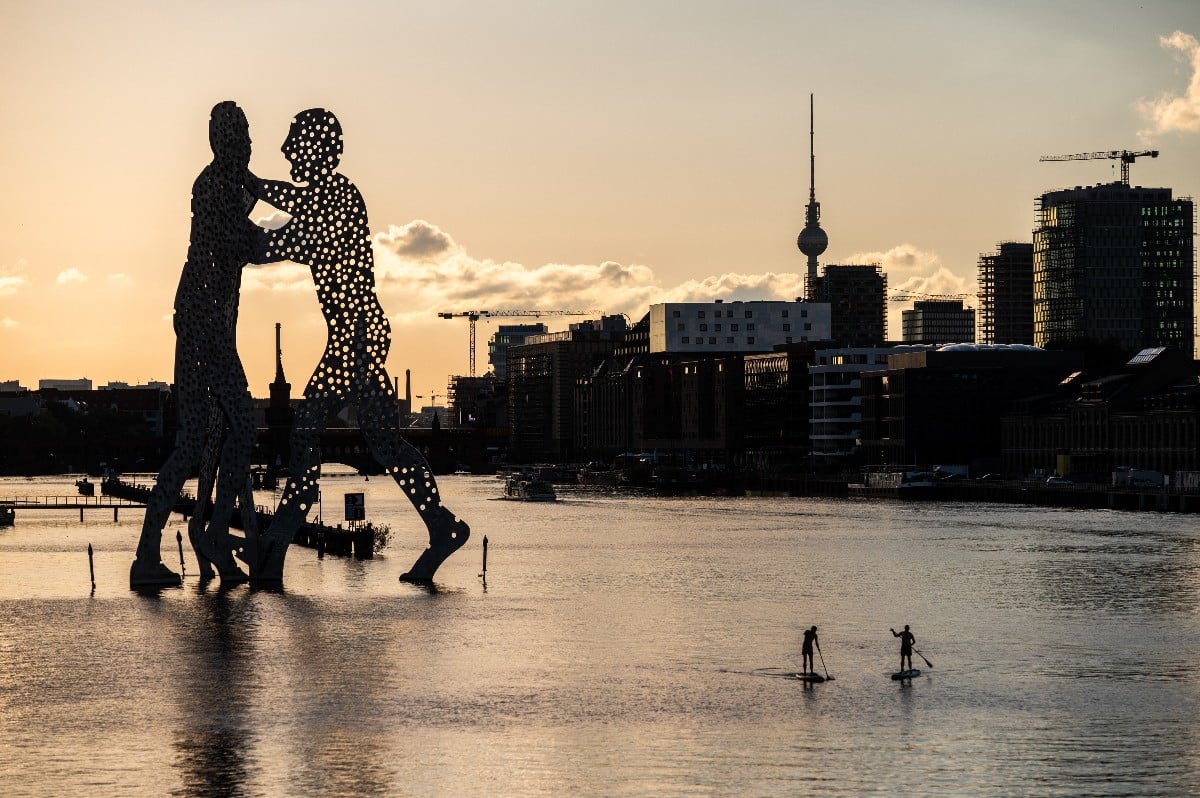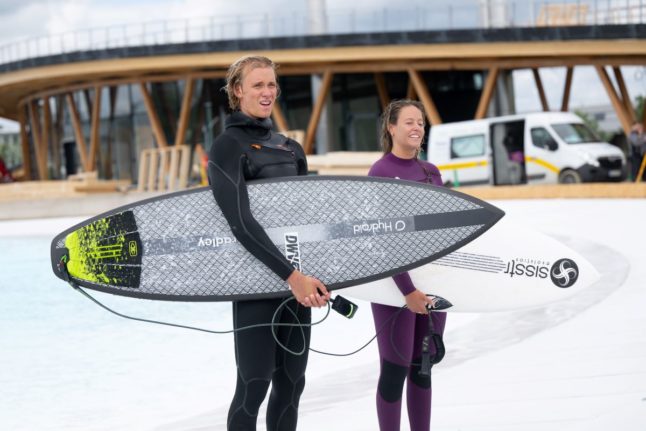There’s no denying that Germany is not your classic surfing destination.
When German residents want to plan a surf trip for the summer, they’re usually looking at a trip to Portugal, Spain, western France or even further afield.
But really there’s no need to leave to Germany for surfers to be able to “hang ten” (a surfing expression referrign to having ten toes over the edge of the board).
In fact, Germany has surf spots suitable for surfers of all skill levels. So whether you’re experienced, a novice or even brand new to the sport – as long as you don’t mind a bit of cold water – Germany has got a surf spot for you.
Here’s where you can find some of the best surf spots in Germany.
The North Sea
Known for its sometimes rough and windy seas, the North Sea offers some of the best ocean surfing in Germany – especially on some of the islands that line the coast.
The North Frisian island of Sylt, known to be a beach vacation destination among German elites, is also home to a number of good beaches for surfing. The beaches Samoa, Westerland, or Bühne 16, for example, have been attracting surfers for years. Bühne 16 even boasts its own annual longboard festival, typically held in early September.
Beside Sylt, the islands of Norderney and Borkum also offer good surfing waves in the region.
Peak surf season comes in the chilly fall and winter seasons here, which bring stronger winds and more consistent swell. But surfing is also possible in the summer, and the milder waves and warmer air temperatures make it perhaps a better time for first tries.

The Baltic Sea
On the other side of Germany’s northern coast, the Baltic Sea also has its fair share of surf beaches.
Close to Kiel, and within a couple hours drive from Hamburg, are Hohwachter Bucht or Damp 2000.
Moving along the coast toward Lübeck, there is also surfing to be found on Fehmarn Island, and on the nearby beaches of Weissenhäuser or Pelzerhaken.
According to information posted on the Surf Camps Europe website, the Baltic Sea is a bit colder than the North Sea and the waves can be hit or miss, with winds sometimes stirring up choppy but powerless waves.
But when the wind is blowing right, the region gets surfable swells, and it’s a step closer to surfers coming from eastern cities like Berlin.
Note that to surf either in the Baltic or North Seas you’ll want at least a 4/3 wetsuit.
River surfing
Funny enough, Germany’s best-known surf spot isn’t on a beach at all. The Eisbachwelle in Munich is among the best known stationary waves in the world.
Daring and innovative surfers have been shredding here for decades, reportedly starting on with self-made boards and a tow rope. But the city has only officially tolerated surfing on the wave (at surfers’ own risk) since 2010.
The Eisbachwelle is 12 metres wide and usually about one metre high. But the water runs fast here – only experienced river wave surfers are advised to drop in. Beginners can gain some practice at a smaller wave, downstream at the Raft Landing (Floßlände).

The popularity of the Eisbachwelle, as both a surfer and tourist destination alike, has inspired other German cities to create surfable river waves of their own.
Nuremberg opened its Fuchslochwelle about five kilometres from the city centre on the Pegnitz river in 2022. Controlled by a dammed weir, the wave height can be adjusted relative to the water level, but it’s generally suitable for beginners.
Another recent addition to the surf scene in southern Germany is the Blackforestwave in Pforzheim – between Stuttgart and Karlsruhe. To access the Blackforestwave on most days, you’ll need to become a member of the local surf club for a monthly subscription fee. But there are also occasional public surf days – the next open surf date will be September 14th.
Finally, opened in 2023, Germany’s newest river wave is the Leinewelle in Hannover. Leinewelle offers memberships for local surfers, but visitors can also book hour sessions as a guest rider. But you’ll need to come with some experience and bring your own board to ride here.
Artificial wave halls
For most city-dwellers, indoor surfing halls with artificial waves may be the nearest place to hop on a board. Artificial waves can also be a good place for beginners to gain a little practice before dropping in on a river wave.
Germany’s biggest indoor surfing facility is Wellenwerk in Berlin, which offers sessions for surfers at all skill levels.
There is also indoor surfing at a facility called Jochen Schweizer near Munich and at Gezeitland in Borkum.
In Langenfeld, you can ride an artificial wave outside on the world’s first stationary wave on a lake. Here you can book lessons or drop in sessions, including a night surf session if you’re driven to get wet after work.
Also in Munich, an outdoor wave pool facility called Surftown is scheduled to open this summer.
Wind-surfing & stand up paddling
Beyond classic wave surfing, board sport enthusiasts can get more time on the water in Germany with wind surfing or on a stand up paddle (SUP) board.
Most of the country’s best windsurfing spots are found along the northern coast, especially on the island of Rügen and at beaches near Lübeck or Kiel or on the island of Sylt. If you’re looking for a place to windsurf, this list of German windsurfing world champion Philip Köster’s favourites, is a good place to start.
On the other hand, if you’re simply looking to hang out on the water, hopping on a SUP allows you to play with balance and build upper body strength or simply float around.

If you don’t have your own board, you can rent a SUP at river and lakeside locations all around Germany. Try searching ‘SUP Verleih’ (SUP rental) to find one near you.
Berliners who are members of Urban Sports Club can score a free hour rental at the Stand Up Club on the Spree near Funkhaus.
Sections of the Rhine River also make for fun SUP adventures, as do many of Germany’s lakes – such as Chiemsee, Titisee or Steinhuder Meer, for example.



 Please whitelist us to continue reading.
Please whitelist us to continue reading.
Member comments